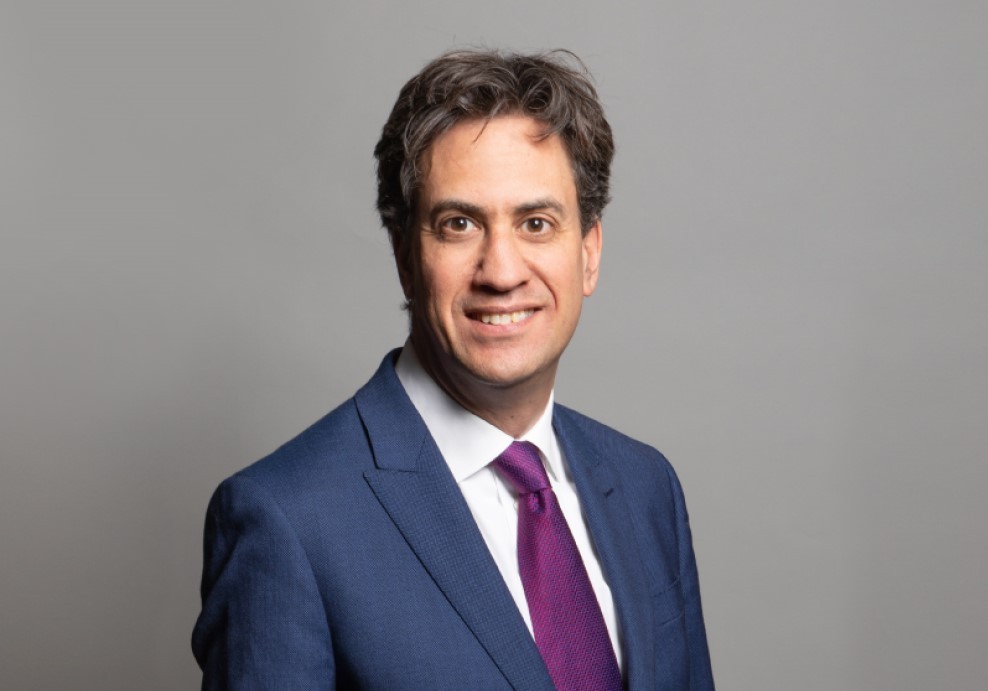Shadow energy secretary Ed Miliband has called for an “electric vehicle revolution” in every part of the country in an effort to boost jobs and support decarbonisation.
In a speech today (25 March), Miliband outlined the Labour Party’s ambitions to accelerate the rollout of electric vehicle (EV) chargepoints on streets and target areas currently “left out” such as Yorkshire, the North West and the West Midlands.
Alongside this, Miliband explained how making EV ownership affordable by offering interest-free loans for new and used EVs to those on low to middle incomes is also on Labour’s agenda, as is backing automotive manufacturers and creating jobs by part-financing the creation of three new additional gigafactories by 2025.
Speaking from the Labour Party’s headquarters, Miliband praised the current Conservative government for its acknowledgement of the threat of climate change but warned that it is clear it is “not up to the task of the transformation we need”.
“What we cannot do is put a green coat of paint on our unequal, insecure economy,” he said, adding that failure to act on climate change will be “a betrayal of this and future generations” but the idea of “fairness and equity” must be at the heart of any changes.
Miliband’s speech and the proposals included within it reflect previous ambitions regarding EVs that have come out of the Labour Party, including a call for a ban on the sale of internal combustion engine cars by 2030 that came months prior to the government indeed setting a 2030 deadline.
The party has also previously pledged to invest £3.6 billion into a “mammoth” expansion of the country’s EV charging infrastructure.
Commenting on these latest proposals, Randolph Brazier, director of innovation and electricity systems at Energy Networks Association, said that the electricity network operators are “ready to support both customers and a green economic recovery by laying the foundations of an electric vehicle revolution”.
“Investing in electricity networks now and making sure that charging points are smart will empower customers, keep their costs down and make the networks even more flexible and efficient.”





